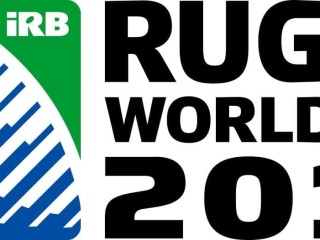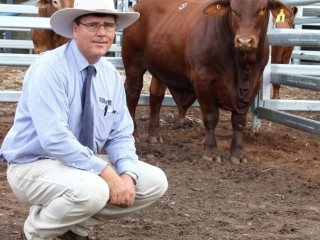NZ World Cup imports on the rise
 Australia is exporting more to New Zealand during the Rugby World Cup than 30 Wallabies, according to latest trade statistics. Shipments of Australian beef to the market during August jumped by more than 50pc compared to year-earlier figures, suggesting that Australian product is being brought in to guard against a potential beef shortfall during the six-week tournament. NZ media recently reported that the event’s timing during a traditional seasonal lull in beef supply may mean there will not be enough local beef on hand to meet the demands of 95,000 visitors during tournament. NZ importers bought 845 tonnes of beef from Australia in August last year, but increased that volume to 1304t last month in the approach to the four-yearly rugby feast which kicks off in Auckland tonight.
Australia is exporting more to New Zealand during the Rugby World Cup than 30 Wallabies, according to latest trade statistics. Shipments of Australian beef to the market during August jumped by more than 50pc compared to year-earlier figures, suggesting that Australian product is being brought in to guard against a potential beef shortfall during the six-week tournament. NZ media recently reported that the event’s timing during a traditional seasonal lull in beef supply may mean there will not be enough local beef on hand to meet the demands of 95,000 visitors during tournament. NZ importers bought 845 tonnes of beef from Australia in August last year, but increased that volume to 1304t last month in the approach to the four-yearly rugby feast which kicks off in Auckland tonight.
Exploring links between e.coli and cattle genetics
USDA-funded research is aiming to better understand the role cattle genetics may play in food contamination through e.coli O157:H7 bacteria. The research is being conducted by University of Nebraska-Lincoln scientists, in partnership with USDA's Clay Centre for Meat Animal Research in Nebraska. Researchers believed that if genetic markers for ‘super-shedders’ of e.coli, or animals that do not carry the bacteria, can be established, genetic and breeding programs could be developed to help minimise the risk that the pathogen presents to consumers of beef products.
Cow liquidation continues in US
The dire drought conditions in Texas and surrounding US States continue to force US beef herd liquidations and more cow culling, US analyst Steve Kay reported in last week’s Cattle Buyers’ Weekly. The region continues to suffer under triple-digit temperatures and little rainfall. In addition, wildfires continue to destroy homes and pasture in northern Texas. Cow slaughter nationally has been higher than last year for nine of the past ten weeks. The last four reported weeks saw slaughter 10,000 to 15,000 head higher than last year. Year-to-date total cow slaughter is 2pc above 2010 and 18pc above the 2005-2009 average, says the Livestock Marketing Information Centre.
JBS shuts Brazilian plants
JBS SA, the world’s largest beef company, has consolidated its Brazilian operations to cut tax costs and add efficiencies. It will shut down and transfer operations at six plants to other plants but will increase its overall production by 5pc, save about 200 million Reals annually, it says. JBS in 2010 operated 35 beef processing plants in Brazil with a daily slaughter capacity of 43,400 head. It slaughtered 6.820m head for the year. JBS says its latest move is designed to generate more value for its shareholders by offering a wider range of price competitive products through cost reduction and efficiency gains. This will be achieved by re-managing production at six industrial units, due to factors such as fiscal inefficiencies as a result of tax legislation, the proximity with other production units and the pursuit of a more efficient product portfolio to expand JBS’s presence in the domestic market.
$42,500 for Droughtmaster
 Queensland’s 2011 spring bull selling season continued with considerable momentum this week, across a range of European and tropically adapted breeds. Bulls topped $42,500 to average $7363 at Tuesday's annual Glenlands Droughtmaster sale held at Gracemere. In another million dollar result and a total clearance for the Childs family, Glenlands sold 165 registered bulls sold to average $7479 while 13 unregistered bulls topped $10,000 and averaged $5962. The sale produced the second best average recorded by Glenlands with the average price increasing by $820 over last year. Further south, the Price family's annual Moongool Charolais bull sale at Yuleba generated a total clearance of 76 bulls for an excellent $7086 average on Monday.
Queensland’s 2011 spring bull selling season continued with considerable momentum this week, across a range of European and tropically adapted breeds. Bulls topped $42,500 to average $7363 at Tuesday's annual Glenlands Droughtmaster sale held at Gracemere. In another million dollar result and a total clearance for the Childs family, Glenlands sold 165 registered bulls sold to average $7479 while 13 unregistered bulls topped $10,000 and averaged $5962. The sale produced the second best average recorded by Glenlands with the average price increasing by $820 over last year. Further south, the Price family's annual Moongool Charolais bull sale at Yuleba generated a total clearance of 76 bulls for an excellent $7086 average on Monday.
Pictured left: Jason Childs with Glenlands $42,500 sale topper Glenlands D Playboy (P) bought by a partnership involving the Hewitt family, Fairhaven Stud, Emerald and the Veivers family, Talgai Stud, Rolleston.
Biogas digesters gaining favour in Brazil
Biogas digesters are being increasingly adopted by Brazilian livestock industries, with major players like Marfrig, JBS SA and others embracing an investment in on-site waste treatment that can translate into thousands of dollars a year in added revenue, according Brazil's Globo Rural television program. BRF Brasil Foods said it had installed biogas digesters on 1186 piggeries in five states since 2005. The farms were either owned by, or exclusive suppliers to BRF. in Brazil’s western Parana state, more than 400 farm and processing sites have reportedly installed bio-digesters. Farmers and property owners can profit by capturing and burning methane gas from the animal waste for on-site electricity, generated through portable generators beside the large digester, which often resembles a large covered pool the size of a basketball court. Businesses can also sell UN-certified carbon credits, through approved documentation of their digester's methane capture. A digester on a farm with 2000 pigs could generated close to BRL15,000 (US$9397) per year from selling carbon credits, according to farmers quoted in the story.
‘Bio-fortified’ iron-rich rice could challenge beef
Scientists from the Australian Centre for Plant Functional Genomics have produced experimental rice with iron levels high enough to meet daily recommended dietary requirements for iron intake. The research was funded by the Australian Research Council and HarvestPlus. It produced genetically-modified rice to increase the amount of iron that is transported to the endosperm of the grain (the commonly consumed part of the grain). This resulted in rice that has up to four times more iron than conventional strains, and double the zinc levels. ‘Rice is the primary source of food for roughly half of the world’s population, particularly in developing countries, yet the polished grain, also known as white rice, contains insufficient concentrations of iron, zinc and pro-vitamin A to meet daily nutritional requirements,” said Dr Alex Johnson from ACPFG. ‘A lack of genetic variation in rice has hindered efforts by conventional breeding programs to address iron levels. These programs have not been able to achieve the level of iron and zinc in the rice grain that we are able to achieve with a biotech approach in our glasshouse experiments,’ he said. Iron deficiency is the most common and widespread nutritional disorder in the world, affecting more than two billion people. Beef is often promoted, both within Australia and overseas, as a food source high in iron. “The development of new cereal varieties containing increased concentrations of iron and other essential micronutrients, an approach known as bio-fortification, offers an inexpensive and sustainable solution to the chronic micronutrient malnutrition problems that currently plague people in developing countries,” Dr Johnson said.
Odd spot: Vegans compete with southern fried chicken
The first strictly vegan university cafeteria opened recently at the University Of North Texas. According to Drovers CattleNetwork, administrators didn't create the vegan-friendly option to make a statement about animal welfare or sustainability, but rather to provide more options for a student body whose tastes are growing increasingly diverse. PETA awarded North Texas U a ‘compassionate campus award.’ Almost simultaneously, the university is opening another dining hall serving ‘Southern Comfort’ fare, offering fried chicken and barbecue specialties. Despite the coincidental timing, the second cafeteria “was not created to appease non-vegans," a campus dining spokesman said.
